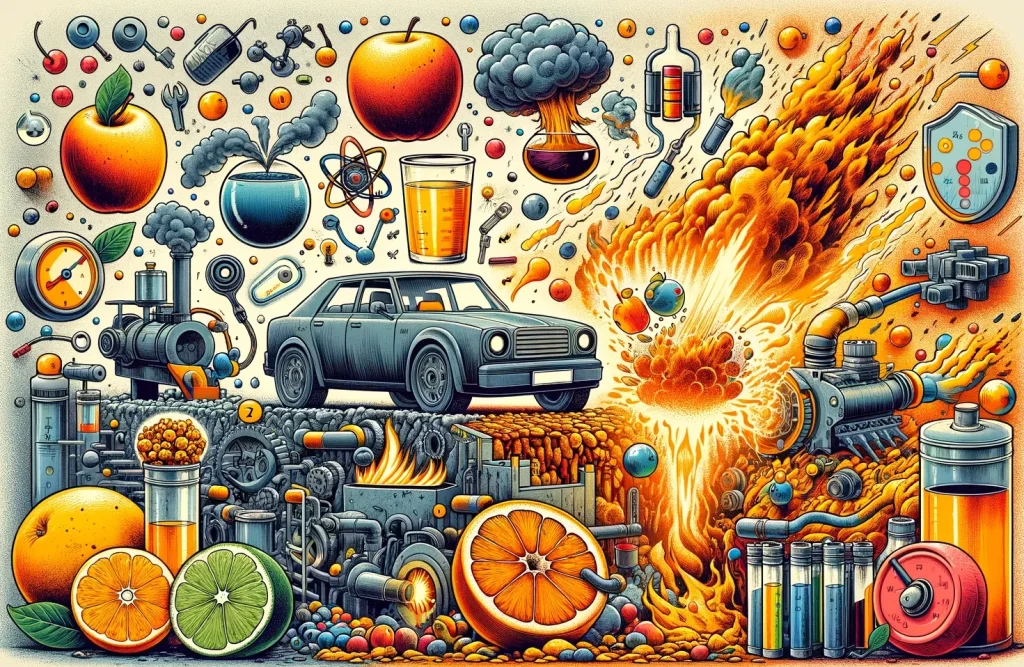
Have you ever wondered why apples turn brown after you cut them or how metals rust over time? The answer lies in a fascinating chemical process known as oxidation. This process touches almost every aspect of our lives, from the food we eat to the cars we drive. In this article, we’re diving into the world of oxidation to uncover its impact on our daily lives and its crucial role in various industrial processes.
What is Oxidation?
At its core, oxidation is a chemical reaction where a substance loses electrons, often involving oxygen (hence the name). This reaction can produce energy, change materials’ properties, and even lead to new substances being formed. A common example is when iron reacts with oxygen in the air, forming rust.
Oxidation in Everyday Life
1. Food and Health
Oxidation is a double-edged sword when it comes to food. It’s responsible for fruits and vegetables turning brown, which is a natural part of their aging process. However, it also plays a crucial role in digestion, helping our bodies to break down food and convert it into energy.
Antioxidants are substances that can prevent or slow down damage caused by free radicals, which are often a result of oxidation. This is why foods high in antioxidants, like berries and nuts, are considered beneficial for health.
2. Energy Production
Oxidation reactions are central to energy production, especially in combustion processes. When we burn fossil fuels, such as coal, oil, or gas, oxidation helps release energy, which can be used to generate electricity or power vehicles.
Oxidation in Industrial Processes

1. Manufacturing
In the manufacturing world, oxidation is a tool for creating various products. For example, the process of anodizing aluminum uses oxidation to create a corrosion-resistant and decorative finish on aluminum products.
2. Environmental Protection
Oxidation processes are used to treat water and air in environmental protection efforts. For instance, ozone treatment, a type of oxidation process, is used to purify drinking water and reduce pollution.
3. Energy Storage
Batteries, especially lithium-ion batteries, rely on oxidation and reduction reactions to store and release energy. These reactions allow batteries to power everything from smartphones to electric cars.
Oxidation Unveiled: A Concluding Overview
Oxidation is a powerful chemical reaction that shapes our world in myriad ways. From preserving our health to powering our cities, its role is both pervasive and essential. Understanding oxidation not only enriches our knowledge of chemistry but also highlights the interconnectedness of science in our everyday lives and industrial advancements.
Whether we’re enjoying fresh produce, benefiting from clean energy, or utilizing the latest technological innovations, oxidation is a key player behind the scenes, making it all possible. So, the next time you notice an apple turning brown or marvel at the endurance of a battery, remember the remarkable process of oxidation at work.
Leave a Reply